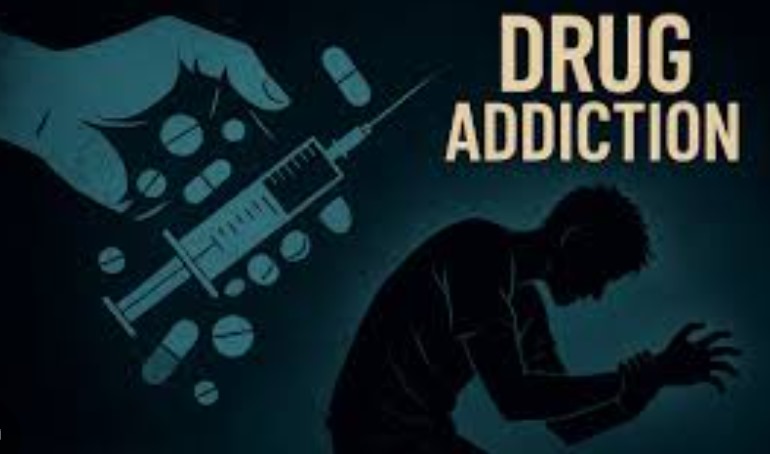Drug Addiction
Drug addiction is a chronic disease that affects the brain and behavior, leading to an inability to control the use of legal or illegal drugs. It often begins with voluntary use, but over time, a person’s ability to choose not to use becomes compromised. The brain’s reward system is altered, making the person crave the substance and need it to feel normal. This can lead to physical and psychological dependence.
Addiction doesn’t discriminate—it affects people of all ages, backgrounds, and income levels. Commonly abused substances include alcohol, nicotine, prescription medications, and illegal drugs like cocaine, heroin, and methamphetamine. People may turn to drugs for many reasons, such as peer pressure, stress, trauma, or mental health issues. Unfortunately, what may start as casual use can quickly spiral into addiction.
The effects of drug addiction are devastating. Physically, it can lead to heart disease, liver damage, and even death. Mentally, it can cause anxiety, depression, paranoia, and hallucinations. Addiction also impacts families, leading to broken relationships, financial struggles, and emotional pain. Social consequences include job loss, legal problems, and isolation.
Recovery from drug addiction is possible, but it is often a long and difficult journey. Treatment may include detoxification, counseling, behavioral therapy, support groups, and sometimes medication. Early intervention is crucial for better outcomes, and support from family and friends plays a vital role in the recovery process.
In conclusion, drug addiction is a serious and complex issue that affects millions of people worldwide. It requires compassion, understanding, and effective treatment. By raising awareness and reducing stigma, we can encourage more individuals to seek help and build healthier, drug-free lives.




